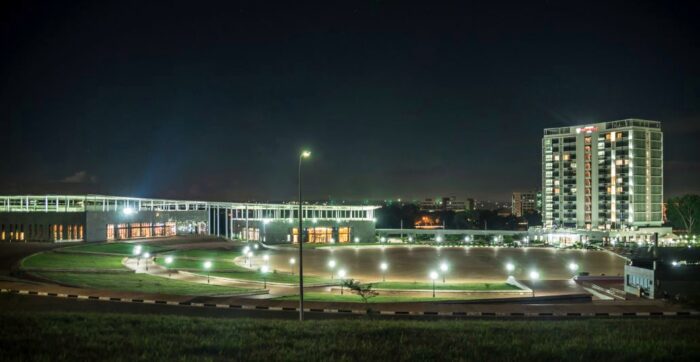Malawi, a landlocked country located in southeastern Africa, holds immense potential for economic development and growth. In this article, we will explore the current economic situation in Malawi, the challenges and opportunities it faces, government initiatives to spur growth, international relations and trade, the importance of human capital and education, potential economic growth sectors, and the significance of regional integration. By examining these factors, we can gain insights into the economic future of Malawi and the opportunities it presents.

Introduction
Malawi, known as the “Warm Heart of Africa,” is a country with a rich cultural heritage and breathtaking natural beauty. As one of the world’s least developed countries, it faces various economic challenges, but it also possesses abundant resources and potential for growth. Understanding the economic future of Malawi is crucial for stakeholders, policymakers, and investors to capitalize on its opportunities.
Current Economic Situation
To assess the economic future of Malawi, we must first analyze its current economic situation. Malawi’s economy heavily relies on agriculture, which accounts for a significant portion of its GDP and employs a large portion of the population. However, the country faces challenges such as limited infrastructure, low productivity, and vulnerability to climate change.
Challenges and Opportunities
Despite the challenges, Malawi presents several opportunities for economic development. Investing in infrastructure development, such as transportation and energy, can improve connectivity and attract investments. Enhancing agricultural practices and ensuring food security can increase productivity and create employment opportunities. The country’s natural beauty and cultural heritage provide a strong foundation for developing a thriving tourism industry. Furthermore, Malawi has enormous potential for renewable energy, with solar and hydroelectric power projects showing promise.
Government Initiatives
Recognizing the need for economic reforms, the Malawian government has implemented various policies and initiatives to foster growth. Economic reform policies aim to create a favorable business environment and attract foreign investment. The government is also actively promoting investments in key sectors such as agriculture, manufacturing, and tourism. By providing incentives, streamlining regulations, and investing in human capital, the government seeks to drive economic progress.
International Relations and Trade
Malawi’s economic future is closely tied to its international relations and trade partnerships. The country actively participates in regional organizations like the Southern African Development Community (SADC) and the Common Market for Eastern and Southern Africa (COMESA). These collaborations facilitate trade and investment opportunities. Malawi also attracts foreign direct investment, particularly in agriculture, manufacturing, and mining sectors.
Human Capital and Education
Investing in human capital is crucial for sustainable economic growth. Malawi’s education system plays a vital role in equipping its workforce with the necessary skills. The government has introduced programs to enhance education quality, promote vocational training, and improve access to education. By nurturing a skilled workforce, Malawi can stimulate innovation, entrepreneurship, and productivity.
Sorry for the interruption. Here’s the continuation of the article:
Potential Economic Growth Sectors
In addition to agriculture, Malawi holds promising economic growth sectors that can contribute significantly to its future development. Manufacturing and industrialization have the potential to create jobs and increase exports. By leveraging its natural resources and improving production processes, Malawi can attract investments and foster industrial growth.
Information and communication technology (ICT) is another sector with immense potential. As technology continues to advance globally, Malawi can capitalize on the digital revolution by investing in ICT infrastructure, promoting digital literacy, and encouraging innovation and entrepreneurship. This can not only drive economic growth but also enhance connectivity and access to information for its citizens.
Financial services also play a vital role in economic development. By strengthening the banking sector, promoting financial inclusion, and encouraging investment in capital markets, Malawi can facilitate access to capital for businesses, stimulate investment, and enhance economic stability.
Regional Integration
Malawi’s participation in regional organizations and its involvement in trade agreements and partnerships are crucial for its economic future. Being part of regional economic communities provides opportunities for cross-border trade, investment, and collaboration. Malawi’s involvement in organizations like SADC and COMESA allows it to access larger markets, attract investments, and benefit from regional integration efforts.
By harmonizing policies, reducing trade barriers, and promoting regional infrastructure development, Malawi can enhance its competitiveness and attract more investments. Collaborative efforts with neighboring countries can also lead to joint development projects and mutually beneficial partnerships.
Conclusion
Malawi’s economic future holds immense potential, despite the challenges it faces. Through strategic government initiatives, investment in human capital and education, development of key sectors, and regional integration efforts, Malawi can unlock opportunities for sustainable economic growth and development.
As stakeholders and investors explore the economic landscape of Malawi, they should consider the country’s unique advantages, such as its rich natural resources, cultural heritage, and untapped potential in sectors like agriculture, manufacturing, ICT, and financial services. With the right policies, investments, and collaborations, Malawi can embark on a path of economic prosperity and improve the lives of its citizens.
| Economic Indicators | Data |
|---|---|
| GDP (2021) | $8.2 billion |
| GDP Growth Rate (2021) | 2.9% |
| Inflation Rate (2021) | 8.5% |
| Unemployment Rate | 22.7% |
| Poverty Rate | 51.5% |
| Main Exports | Tobacco, tea, sugar, cotton |
| Main Imports | Refined petroleum, machinery, vehicles |
| Agricultural GDP Contribution | 30% |
| Foreign Direct Investment (2021) | $249 million |
| Ease of Doing Business Rank (2021) | 168 out of 190 countries |
Source: World Bank, https://databank.worldbank.org/